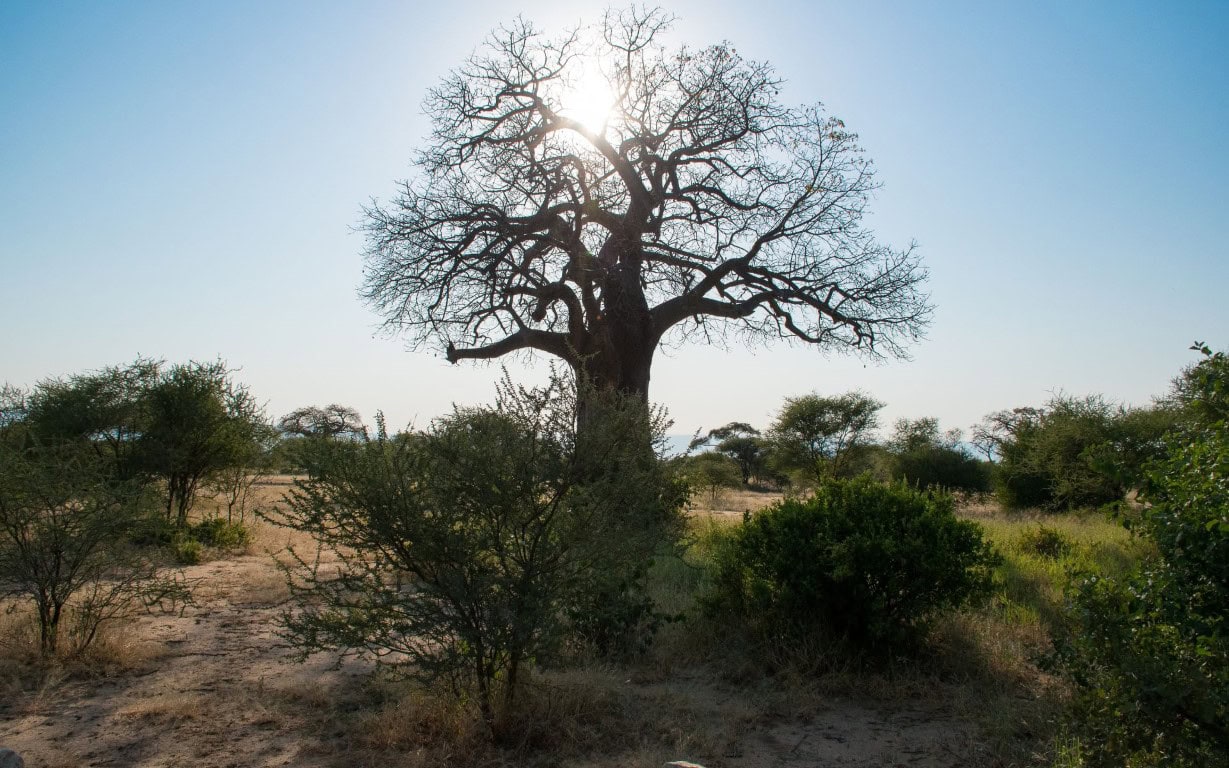Make your safari matter by contributing to conservation and community initiatives in Tanzania. Sustainable safaris are all about providing you with incredible wildlife experiences while having a positive impact on the environment and the animals and people that call it home.
Why Should You Go on a Sustainable Safari in Tanzania?
Contribute to Conservation
Impact safaris are safaris that focus on meaningful contributions and immersive experiences that go beyond just seeing Africa’s wildlife in their natural habitats.
A sustainable Tanzania safari is a form of ecotourism that contributes positively to the environment and the species that call it home. By going on an impact safari, you actively support wildlife conservation efforts and contribute to the protection of endangered species.
Support Local Communities
Ecotourism initiatives like impact safaris also help to improve the lives of local people. Many impact safaris include cultural exchanges that support local economies, providing educational opportunities and healthcare for communities.
Hands-On Involvement
Impact safaris are for safari-goers who are ready to get their hands dirty! You’re able to participate in projects like anti-poaching initiatives, habitat restoration, and wildlife research to make your safari experience incredibly meaningful.
Educational Experience
An impact safari is an educational experience; you’ll gain a deeper understanding of the challenges facing the wildlife and ecosystems of Tanzania, as well as the efforts being made to protect them. You’ll be guided by expert guides and discover exactly how your safari is positively impacting communities, natural environments, and wildlife.
Eco-Friendly Travel
A big part of impact safaris is sustainability; this type of safari focuses on eco-friendly accommodations and minimising your environmental footprint. Many safari lodges have taken steps to reduce their carbon footprints through solar power projects, using eco-friendly materials, and incorporating electric vehicles and boats in safari experiences.
Connect with Experts
Impact safaris are led by experts who are deeply involved in preserving natural habitats, rehabilitating animals, and wildlife conservation projects. You’ll be able to learn from conservationists, rangers, and researchers who are on the front lines of protecting Tanzania’s wildlife and habitats.
Make a Lasting Difference
By going on a safari in Tanzania, you’re making a difference! Your financial support helps fund ongoing conservation projects, leaving a positive, long-term impact. Thanks to ecotourism in Tanzania, many important initiatives have been funded, which has resulted in habitat restoration and species being reintroduced into reserves and parks.
Best Destinations for Impact Safaris in Tanzania
Nyerere National Park
Nyerere National Park is well-known for its conservation projects that focus on endangered species – like the African wild dog – and anti-poaching initiatives.
Ngorongoro Conservation Area
This is a place where wildlife conservation and Maasai cultural preservation are closely intertwined, offering both wildlife and cultural impact experiences.
Ruaha National Park
Ruaha is home to a variety of wildlife conservation programmes, including elephant and lion research projects.
Serengeti National Park
The Serengeti National Park includes many lodges that partner with local conservation projects, allowing guests to contribute directly to wildlife protection efforts.
Tarangire National Park
Tarangire National Park is a fantastic destination for elephant conservation programmes and community-based tourism projects that benefit locals.
5 Tips for a Sustainable Safari in Tanzania
1. Research Impact Partners
The safari experts at Discover Africa stay up-to-date with conservation initiatives and projects in Tanzania.
Ask us to help you choose operators and lodges that are actively involved in sustainability projects and community initiatives to ensure your visit has a tangible positive impact.
2. Ask About Hands-On Involvement
Choose one of our safaris that allows you to actively participate in conservation projects.
This can include monitoring wildlife, learning from rangers while on a Tanzania safari, and even assisting in conservation tasks.
3. Pack Light and Eco-Friendly
Most lodges have laundry services, so you can pack minimal clothing items. Bring reusable items, like water bottles and eco-friendly toiletries, to minimise waste and reduce your environmental impact during your trip.
4. Prepare for Cultural Exchanges
Being in a different country can be a culture shock, so it’s important to arrive with an open mind and be willing to listen and learn.
Local communities play essential roles in conservation efforts, so participating in community projects is a big part of an impact safari. Many sustainable safaris include visits to local villages and cultural experiences.
5. Give Thoughtfully
If you want to contribute more, consider making donations to the conservation or community projects you visit, but ensure they go through trusted, transparent organisations. Be guided by our safari experts (available 24/7) as well as the employees at the lodge you’re staying at.

























